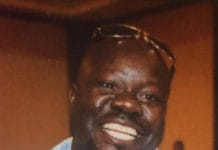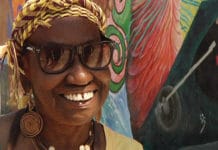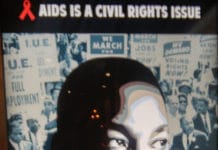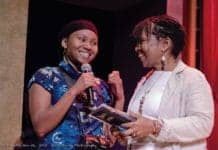TV converts to digital: will it create a new digital divide?

Yet there’s a serious downside: 21 million families still rely on rooftop antennas and rabbit ears. On Feb. 17, those old over-the-air televisions sets will not pick up the stations many Americans rely on. A study shows that 12.5 percent of African American households and 13 percent of Hispanic households are not ready for the digital transition.
Many low-income and people of color who helped lift Sen. Barack Obama to the presidency will not be able to follow his progress once he takes office. Moreover, as the nation confronts one of its most challenging economic crises ever, millions of people won’t be getting the latest news and information about public policy changes from their television sets.
The government is sponsoring a conversion assistance program. A Digital-to-Analog Converter Box Coupon is available; households can receive two $40 coupons for the purchase of converter boxes. Depending on the television, converter boxes cost between $40 and $70. For more information, visit www.dtv2009.gov, or call 1-888-388-2009 (voice). The process can take up to six weeks, so people must order their coupons now.
In dire economic times, home-cooked meals make comeback: First 5 California introduces free mini cookbook
With the economy officially in recession and families facing unprecedented financial hardships, First 5 California is offering a free mini cookbook with recipes for healthy, easy-to-make meals that parents can afford on a limited food budget. Recipes for breakfast, lunch, dinner and snacks in “Yummy for Your Tummy” were developed by certified nutritionist and TV personality Chef LaLa and have been kid-tested and approved.
Tips throughout the book will help parents and their children make better choices about what they cook and eat. Chef LaLa also has money-saving tips on how to transform leftovers into a new meal or make cost-cutting substitutions.
“As a nutritionist, chef and mother, my goal is to provide tasty, nutritious meals that families can easily incorporate into their daily lives to help form a lifetime of healthy eating habits,” said Chef LaLa.
“Yummy for Your Tummy” is available for free to all Californians by calling 1-800-KIDS-025 or visiting www.first5california.com.
Dial 2-1-1 for Energy Bill Assistance
As cold temperatures descend on the Bay Area, residents who need help paying their PG&E bills can dial 2-1-1 to find energy assistance programs that serve the region. 2-1-1 referral service is free, confidential and available 24 hours a day in more than 150 languages.
Residents who cannot dial 2-1-1 should call 800-273-6222 to reach United Way’s 2-1-1 call center. For the hearing impaired, dial 415-808-4440 (TTY) or 7-1-1.
2-1-1 specialists can answer questions such as:
• How do I apply for energy assistance?
• What are the eligibility requirements?
• Is there a “warming center” in my neighborhood?
• Do I qualify for other kinds of assistance or community services?
2-1-1 is an easy-to- remember toll-free phone number that connects callers with local community services, such as food, shelter, counseling, employment assistance, quality child care and more. During a disaster, 2-1-1 provides critical information about evacuation routes, food and shelter, as well as support with finding new jobs and permanent housing during long-term recovery. 2-1-1 is confidential and available 24 hours a day in more than 150 languages. For more information, visit www.211BayArea.org.
If you are HIV positive but do not yet have AIDS, you are probably eligible for Medi-Cal
The Los Angeles Superior Court is ordering California’s Department of Health Care Services (DHCS) to implement a landmark 2002 law intended to extend Medi-Cal (California’s version of Medicaid) coverage to HIV-positive Californians. Prior to the passage and signing of this law, only those who had advanced to a diagnosis of AIDS were considered eligible for Medi-Cal enrollment and coverage.
“We thank the court for this judgment which compels the state to do its job by implementing this important legislation passed by the state’s representative government and signed into law by the governor,” said Michael Weinstein, president of AIDS Healthcare Foundation,
For more information, contact the AIDS Healthcare Foundation, 6255 W. Sunset Blvd, 21st Floor, Los Angeles, CA 90028-7422, (877) 844-4243 (toll free), www.aidshealth.org.

 Store
Store










